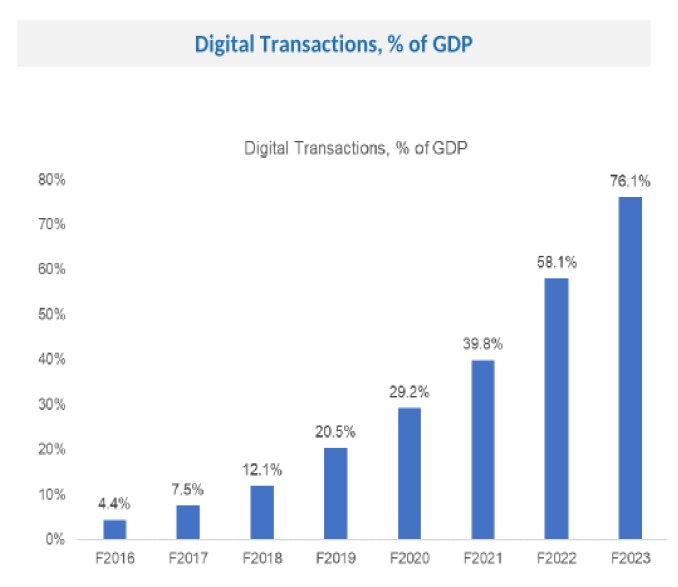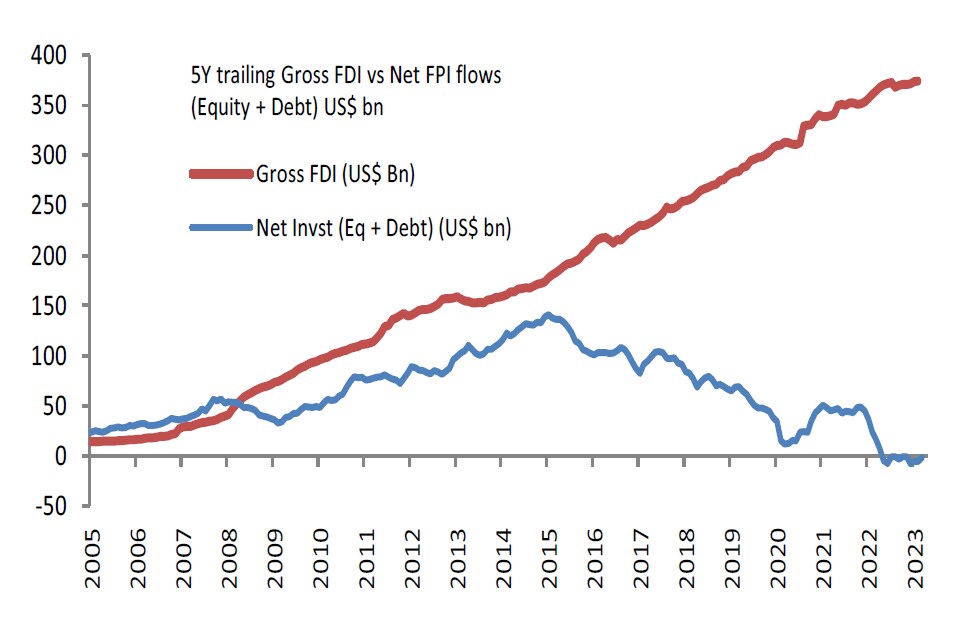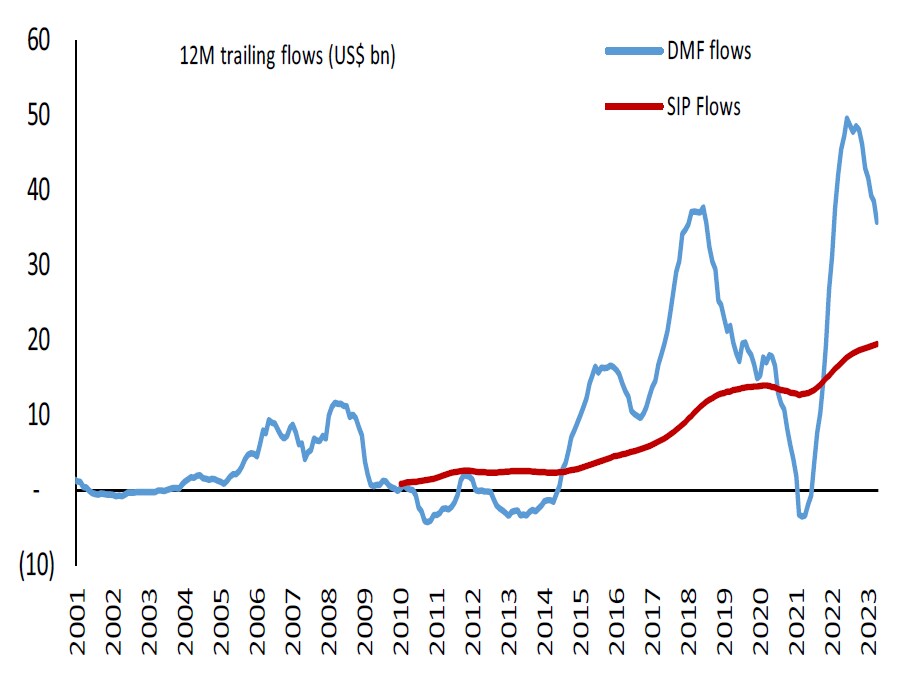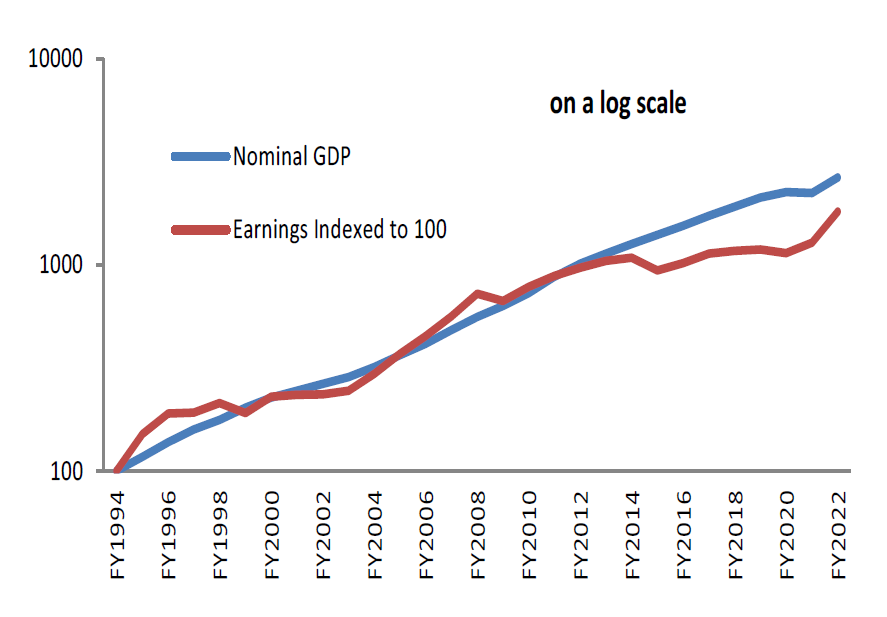
Ten major changes, driven by policy reforms, transformed India's economy and markets in less than a decade, according to Morgan Stanley.
These changes will help the country lead Asia and the world in growth, the research firm said in a report, titled 'How India Has Transformed in Less than a Decade'.
The transformational changes since 2013 range from supply-side reforms and formalisation of the economy to growing investments in mutual funds and the government's support to corporate profit, according to the report co-authored by Ridham Desai, India equity strategist at Morgan Stanley.
Other authors include Upasana Chachra, chief India economist; Sheela Rathi, equity analyst; Nayant Parekh; equity strategist and Bani Gambhir, economist.
Here are the 10 big changes India has seen:
Supply-Side Policy Reforms
India offers 15% corporate tax rate for new manufacturing companies commencing operations before March 2024, which is the lowest among peers. The base corporate tax rate in India is at par with peers, the report said.
Citing the infrastructure development between 2006 and 2014 and 2015–23, Morgan Stanley highlighted:
The national highway network grew to 53,700 km from 25,700 km.
Renewable energy capacity increased to 95.7 gigawatts from 25.7 GW.
Broadband subscriber base rose from 58.9 million to 771.3 million.
Railway route electrified jumped from 6% of the total to 42.3% of the total.
Formalisation Of The Economy
The Goods and Services tax and growing digital transactions has accelerated the formalisation of the economy. According to the report, digital transactions, as a percentage of the gross domestic product, have grown to 76.1% in fiscal 2023 from just 4.4% in FY16.

Real Estate Regulation Act
Aided by the Real Estate (Regulation and Development) Act, according to the report, housing sales showed a rising trend from the middle of 2015 till the first three months of 2023. The rebound seen during the pandemic has sustained.
Digitalising Social Transfers
Morgan Stanley referred to the rise in direct-to-beneficiary transfers under social welfare schemes. While the number of schemes has increased, the amount transferred grew during the pandemic years and has now plateaued.
Insolvency And Bankruptcy Code
Impaired loan ratio reached a 12-year low in the last fiscal due to the Insolvency and Bankruptcy Code, coming down from the peak in 2017–18, according to the report. Corporate debt as a percentage of the GDP has been declining from 62% in fiscal 2015 and is expected to moderate to 50% in fiscal 2023.
Flexible Inflation Targeting
Even as inflation has been a major macroeconomic concern, India has been able to decouple its policy rate decisions from that of the Federal Reserve, the report highlighted. This has become possible due to a flexible inflation targeting regime.
Focus On FDI
India has maintained focus on foreign direct investments since 2015, the report said.

India's 401(k) Moment
Retail participation has been growing through the mutual fund route, driven by SIP flows, according to data cited in the report.

Government Support For Corporate Profit
Corporate profit has been rising aided by government support, the report said.

MNC Sentiment At Multiyear High
MNC sentiment towards India is higher than China, according to Morgan Stanley.
With the positive economic and market implications of these changes, "India will emerge as a key driver for Asia and global growth," the report said.
Key risks to this outlook are a global recession, a fragmented general election outcome in 2024, a sharp rise in commodity prices due to supply outages and shortages in skilled labor supply, the report said.
Essential Business Intelligence, Continuous LIVE TV, Sharp Market Insights, Practical Personal Finance Advice and Latest Stories — On NDTV Profit.






















